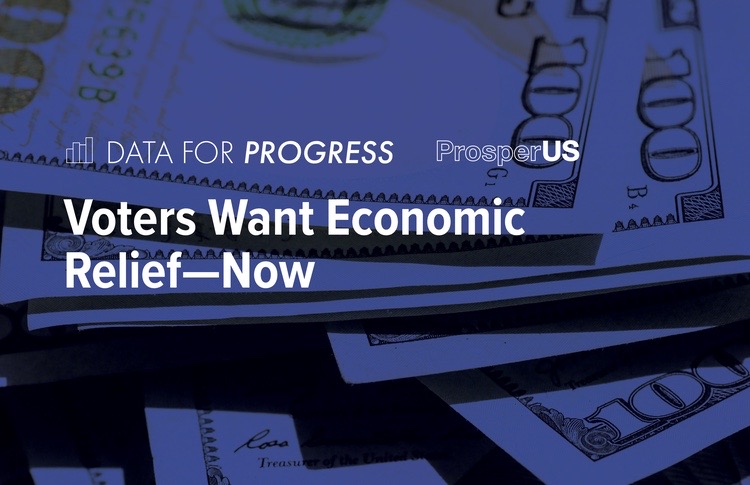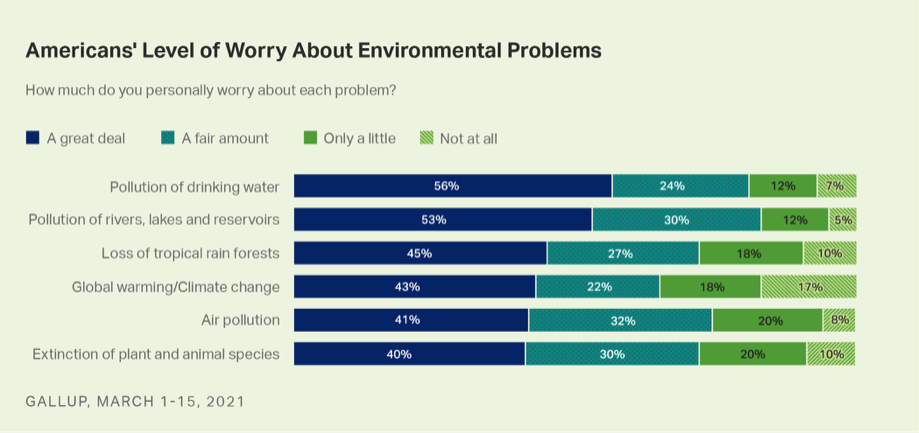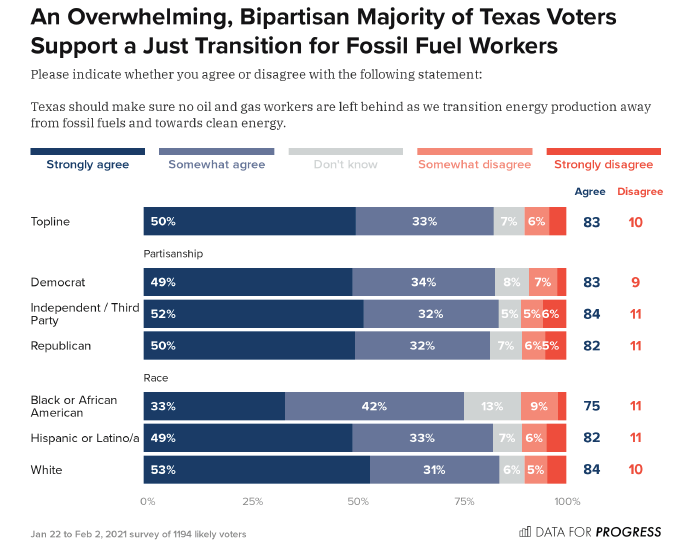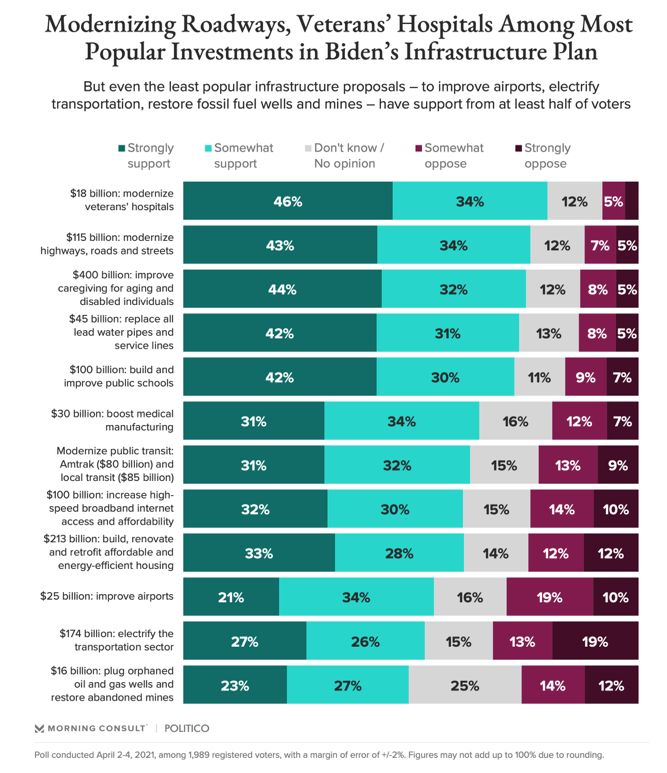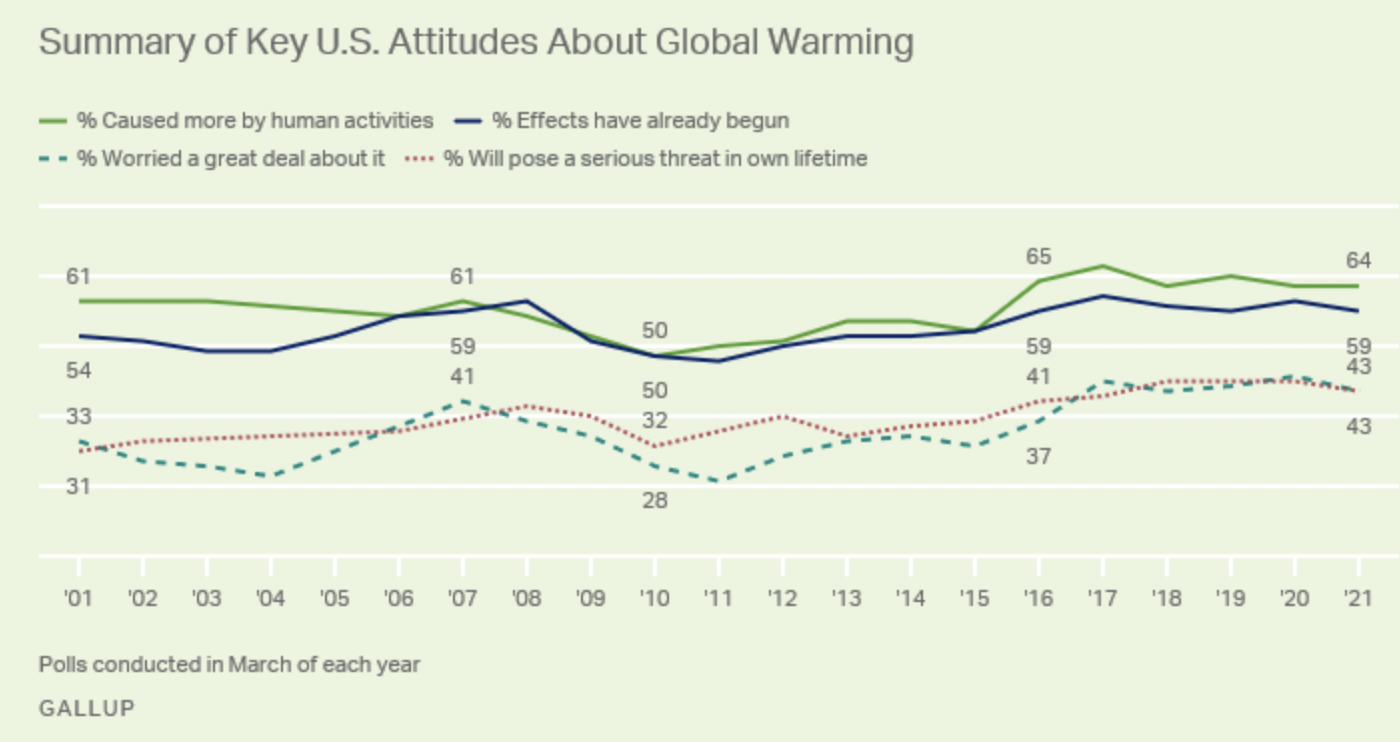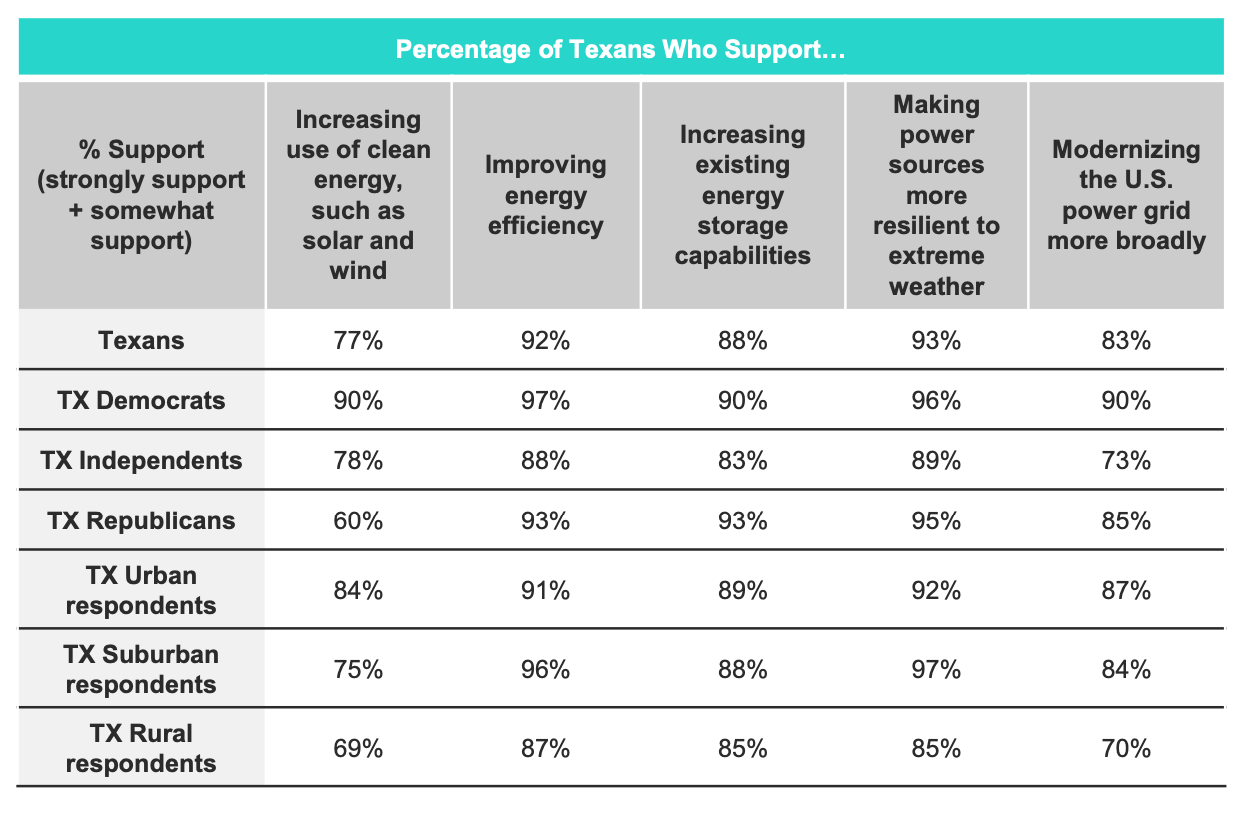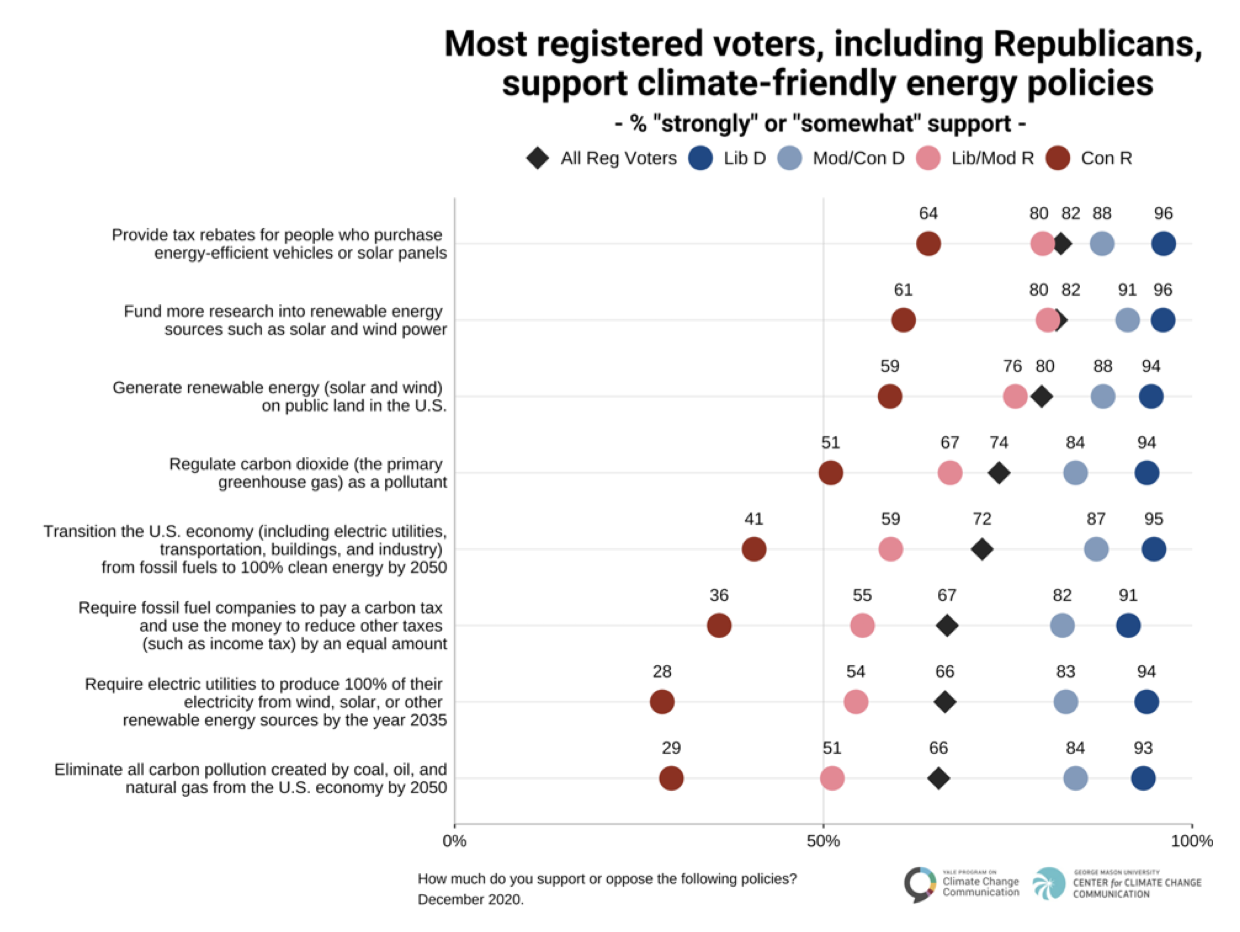Resources
Search below for resources covering the intersection of climate engagement, social science and data analytics.
RESULTS
Voters Want Economic Relief--Now
Recognize the public appetite for more economic help from the federal government. This April 2021 survey reveals that a majority of likely voters want Congress to pass another economic relief bill, in addition to the $1.9 trillion bill approved in March. Support runs across party lines, with people under 45 and voters of color most heavily in favor. Support holds true no matter the price tag, aside from self-identified Republicans being evenly divided over the notion of a $10 trillion bill.
- 50 % of voters believe climate change poses a “critical threat” to the country’s vital interests in the next decade, an increase of 10 percentage points from a June 2017 poll and up 6 points from a March 2019 survey.
- Climate concern remains highly partisan. The share of Democrats who call the climate change threat critical increased most substantially over the past four years, jumping 16 points to 75%. But the share of Republicans who said the same has barely budged, increasing from 20% to just 21%.
- Voters were more likely to view other potential threats as critical than they were climate change, such as cyberattacks on the United States (69%), domestic terrorism (65%), the nuclear programs of North Korea and Iran (55% and 54%, respectively) and white supremacist groups (51%).
- 60% of voters believe the U.S. should be a part of the Paris Agreement vs. just 22% who said it should not -- up slightly (albeit not significantly so) from the 2017 poll (at 57% yes and 24% no after President Trump pulled the United States from the treaty.)
The American public's level of worry has ebbed and flowed in tandem across the six environmental threats over the past 21 years (2000 - 2021). Although degrees of worry have shifted over time, the rank order has remained largely consistent, with water pollution outpacing all other threats.
- Of six environmental problems facing the U.S., Americans remain most worried about those that affect water quality. Majorities express "a great deal" of worry about the pollution of both drinking water (56%) and rivers, lakes and reservoirs (53%).
- Fewer, though still substantial minorities ranging between 40% and 45%, express a great deal of concern about the loss of tropical rain forests, global warming or climate change, air pollution, and the extinction of plant and animal species.
- The latest figures show significantly lower levels of worry than in 2000 on all issues except global warming, which is roughly on par today with 2000 after some fluctuation in the interim years.
- 41% percent of Americans rate the overall quality of the environment in the U.S. as "excellent" or "good," and 59% say it is "only fair" or "poor" -- both of which are essentially unchanged from the past several years' readings. Biden's election has resulted in a 26-point increase in Democrats' view that the quality of the environment is getting better. At the same time, Republicans have become less likely (by 12 points) to say it is improving.
Poll: Texas Voters Want to Transition to Clean Energy
A statewide survey to assess the attitudes of likely Texas voters (including an oversample of Latino voters) toward climate change, pollution, and transitioning to clean energy revealed key insights, including:
- Across party lines, voters are overwhelmingly concerned (85%) about air and water pollution.
- 67% are concerned about climate change, with Latino (82%) and Black (80%) voters expressing the highest levels of concern.
- Voters also agree (61%) that there is still time to come together as a state and country to take the actions that are necessary to address climate change and leave a better world for generations to come. Agreement is highest (72%) among Latino voters.
- A strong majority (59%) also would like to see their leaders support clean energy industries to reduce carbon emissions and ensure Texas remains America’s energy leader, with support highest among Black (77%) and Latino (66%) voters.
- A message that resonates across party lines is that Texas can face tough problems and can leverage its status as a national and global energy leader to become a champion of a new global energy economy.
- 83% agree that Texas should make sure no oil and gas workers are left behind as America transitions away from fossil fuels and toward clean energy.
-
A majority also think it is “Very important” or “Somewhat important” to include proposals for job training (89% important), new jobs in clean energy (87% important), pensions for retired workers (85% important), financial assistance for new degrees or trade certifications (83%), and buyouts for workers within five years of retirement (78%) in this transition bill.
-
Texas voters also support closing the revolving door of government officials becoming lobbyists for the fossil fuel industry, with a majority of Texans across parties (52%) supporting a proposal that would prevent former lawmakers from becoming lobbyists for the oil and gas industry immediately after leaving office.
- 60% of voters said they support the White House’s American Jobs Plan, including 84% of Democrats, 51% of independent voters and 35% of Republicans.
- At least three-quarters of voters support the plans to devote $18 billion to modernize veterans’ hospitals; $115 billion to modernize highways, roads and streets; and $400 billion to improve caregiving for aging and disabled individuals.
- 76% of Democrats said they would support spending $174 billion to accelerate the transition to electric vehicles, including expanding the country’s EV charging network, while just 28% of Republicans said the same.
59% of U.S. adults recognize the effects of global warming have already begun to happen, and a similar proportion believe pollution from human activities is more to blame than natural causes for the Earth's rise in temperature over the past century (64%). Fewer Americans (43%) are "highly worried" about global warming, although another 22% say they worry "a fair amount." 43% also expect global warming to pose a serious threat in their own lifetime. In general, the public's views about global warming haven't changed over the past year, according to Gallup's latest annual Environment poll, and are similar to what they have been each year since 2016. However, this stability masks growing divergence between Republicans and Democrats.
Read additional coverage of this polling in Grist, which digs deeper into the partisan data to show important generational splits in Republican attitudes toward climate.
Poll: Texans’ Opinions on Recent Extreme Cold
Survey of 500 Texans in the immediate aftermath of the extreme cold weather and resulting power outages found:
- Respondents expressed concern about extreme cold (78%), power outages caused by weather events (83%), and access to clean drinking water (76%). Concern spanned community types, and was highest (80%) among rural respondents.
- 79% say it should be a priority for the U.S. to pass legislation to address climate change
- Majorities across Texas support a wide range of legislative measures to prevent future power outages, including: increasing use of clean energy (77%), improving energy efficiency (92%), increasing existing energy storage capabilities (88%), making power sources more resilient to extreme weater (93%), and modernizing the U.S. power grid more broadly (83%).
Poll: Most Voters Support Ambitious Climate Action
Should it be called “natural gas” or “methane”?
Emphasize "methane" and don't use "natural" in language referring to the substance sometimes referred to as "natural gas". In testing the positve and negativ assocations with the phrases “natural gas,” “natural methane gas,” “methane,” or “methane gas”, among Americans, the term “natural gas” evokes much more positive feelings than do any of the three methane terms. Conversely, the terms “methane” and “methane gas” evoke much more negative feelings than does “natural gas.” The hybrid term “natural methane gas” is in the middle — it is perceived more positively than “methane” or “methane gas,” but more negatively than “natural gas.” This pattern was true for both Democrats and Republicans, whereas further research from this team found that the additional terms “fossil gas” and “fracked gas” were more polarizing: viewed favorably by Republicans but very negatively by Democrats. So, if engaging an exclusively left-leaning audience, "fossil gas" or "fracked gas" may be the best choices.
Poll: NC voter support for clean energy policies ticks down but stays strong
- 79% of voters are more likely to support a lawmaker who supports policies that encourage renewabl energy options (such as wind, solar, and waste to energy technologies), compared to 51% of voters who are more likely to support a lawmaker who supports policies that encourage the development of more fossil fuel energy, such as coal and oil.
- Voters are most likely (85%) to support a lawmaker who supports legislation that would provide additional ways for home or business owners to finance energy upgrades, such as improved insulation, lighting, or windows.
- 77% of voters are more likely to support a lawmaker who wants to change North Carolina's regulatory policy to allow for more competition and consumer choice.
- A pluarility of voters (38%) see climate change as a "serious problem" and think "immediate action" is necessary. An addiitonal 22% support "some action."
- 60% of voters recognize that the effects of climate change "have already begun to happen" and 59% understand climate change is "mainly the result of manmade pollution."
Pagination
- Previous page
- Page 4
- Next page
